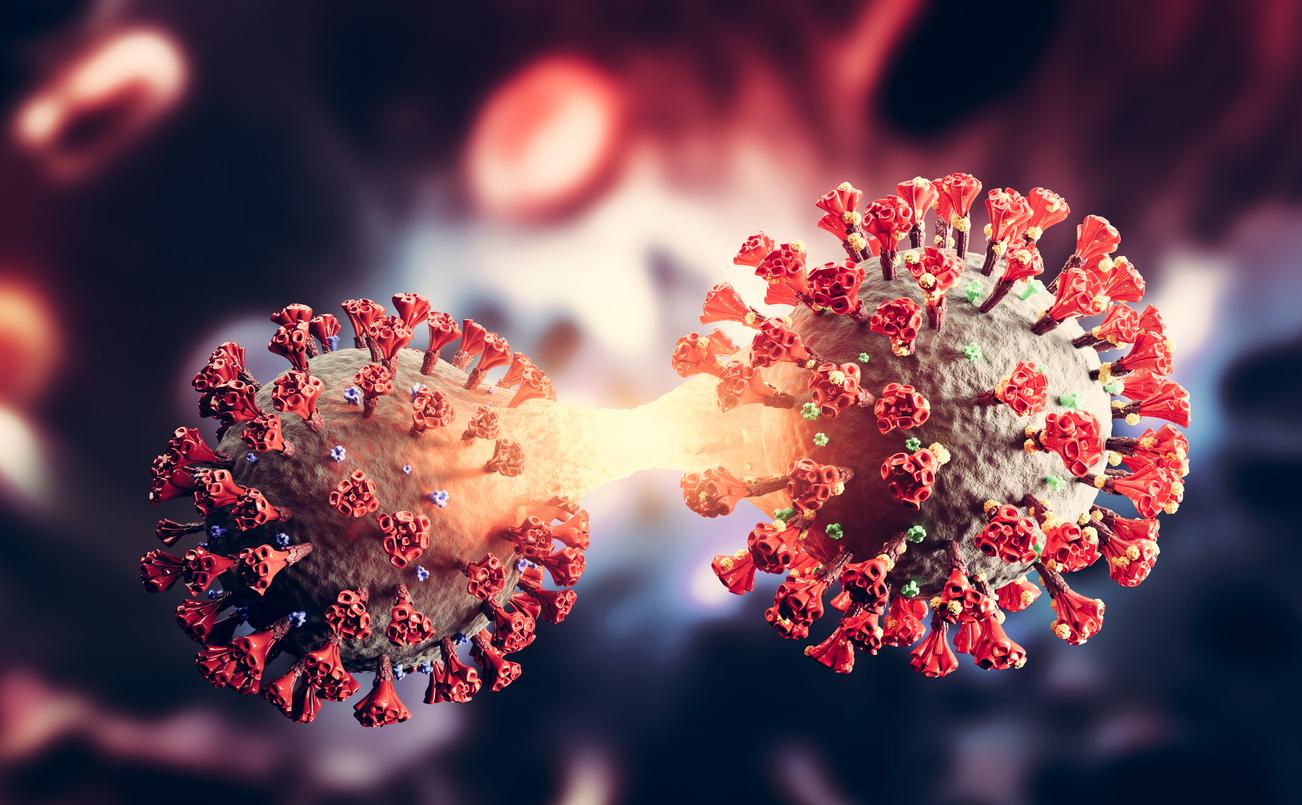
Geriatrician Marcel Olde Rikkert
Marcel Olde Rikkert gained national fame when he stood up for the nursing home residents who became socially isolated during the first corona wave. “Social isolation has a huge impact on the resilience of the elderly.”
Last year, during the first and second corona wave, ‘the’ elderly were lumped into one big heap. What do you think of that?
“You constantly hear: ‘You are over 70 years old, you are in the risk group, so you should stay at home.’ bland. With regard to the vulnerability to Covid-19, it is very easy to make a risk assessment for each individual. A 75-year-old with a chronic lung disease is in very different shape than a 75-year-old who still runs the four-day course. The latter does not just die of covid.”
You were quite critical at the time about the forced social isolation of the elderly.
“People’s fitness deteriorates if you don’t allow them to become socially active, get out of bed and move. Then not only the condition of the muscles deteriorates, but also that of the heart and lungs. As a result, even with a minor health setback, you experience much more trouble than would otherwise be the case. In geriatrics and gerontology we have known for a hundred years that the bed is the greatest enemy of the elderly. In other words: not moving is the main thing that deteriorates the resilience of the elderly. The fact that policymakers do not realize that social isolation of the elderly can have a huge negative impact on their resilience is a huge mistake. And we are not even talking about the increase in loneliness, the increased confusion among people with cognitive disabilities, or fearful reliving of the war due to isolation measures.”
How did you get so involved with the oldest elders?
“As a professor of geriatric medicine, I immerse myself in the entire human body instead of just one organ, and in all kinds of diseases. I find that interesting and it makes it possible to provide integrated care: care in which all care providers involved with a patient consult with each other and with the patient about the best approach. I can take the lead in this, precisely because I have that broad view.”
What added value does this provide for patients?
“For example, you can prevent overtreatment. For example, the elderly are often prescribed far too many pills, based on the idea that each new pill makes a new, important contribution. But when stacking medication, the combination of all those pills often goes wrong. We’ve known that for a long time. The addition of, for example, ‘harmless’ analgesic anti-inflammatories can already lead to an attack of shortness of breath in the elderly with heart failure. And starting a drug for prostate complaints or low mood can significantly increase the chance of falls. This therefore requires sufficient understanding of drug combinations. Yet the vast majority of doctors do not take this into account when prescribing medication. They only have eyes for the disease they want to tackle. I still look at it with amazement and surprise.”
Aren’t you just angry? You have been putting this issue on the agenda for decades.
“I often feel frustration about that, but I’ve learned to turn it into positive action. If you want doctors to think in a new way—not in diseases, but in patients who have disease—you try to make a mammoth tanker change course. For the past thirty years, medical training has focused solely on unraveling diseases. This involves the genetic and biochemical aspects of disease. You can’t change that in one generation.”
Do nursing homes treat their oldest elderly people better?
“Nursing homes make a living and care plan together with residents and relatives. This includes concrete goals, such as being able to get out of bed safely and wash and shower without help. But more fundamental goals also emerge. Does someone want to live as long as possible or is it mainly about not having pain? Or to experience the marriage of a grandchild? Agreements are then made about what is needed to achieve those goals. And whether hospitalization for a corona infection is desirable. Nursing homes are much further along than hospitals. If a treatment plan for cancer is established there, no one asks the patient and their relatives what the goal of that treatment should be. An exception is the geriatrics department. We ask every patient we admit: ‘Is your first priority to cure your condition or do you think it’s more important to be able to do what you want to do as well as possible?’ Most older people consider improving their well-being more important.”
And if someone does want all the medical treatments that are possible?
“Someone may want that, but it should not degenerate into ‘you ask, we run’. As a doctor, you should not provide non-sensical care. When people start demanding care that we think is completely inappropriate, things get complicated. Fortunately, such extreme situations are rare. Doctors often follow the routes outlined in the guidelines, but there are also alternative options. Ask which ones they are and discuss them. And don’t be put off, but postpone the decision until the next visit, so that you can think about it yourself.”
In that case, you assume that the relative and patient agree. That is not always the case.
“In such a case, it is better to go to the doctor first. They can help you find out what to expect from a treatment. If we cannot resolve the matter with the patient in the hospital, we often return to the GP. They have known the patient and their family for some time and can help to make a good decision.”
Do you have people over 80 in your personal environment?
“My father is 99 years old, my mother 97 years old. I don’t try to play the doctor to them, but I do coach them a bit to keep moving. Fortunately, that is high on their agenda, but I also see that it gets more difficult with age. At the same time, I can see from the very inspiring 93-year-old Anneke Groot-Bosse – who at the age of 89 did a somersault from a diving board and hung from a parachute a year later – what is still possible in old age. That’s how I would like to live to be 80 or 90.”
I wish you well, but you as a doctor can also just be unlucky. Our lives are not so malleable.
“I’ve had a good life so far and I’d like to continue living. But if it ends tomorrow, then it has been good too.” ▪
Marcel Olde Rikkert (58) is professor of geriatric medicine at Radboudumc, head of the Radboud Alzheimer Center and, since 1 September, editor-in-chief of the Dutch Journal of Medicine. He is currently setting up the Center for Integrated Care from the hospital’s geriatrics department, together with internal medicine, rehabilitation medicine and anaesthesia. The aim is to innovate care for the elderly and make it more effective. Olde Rikkert is the author of The handbook staying young & growing old.
This article previously appeared in Plus Magazine January 2021. Want to subscribe to the magazine? You can do that in an instant!
Sources):
- Plus Magazine















